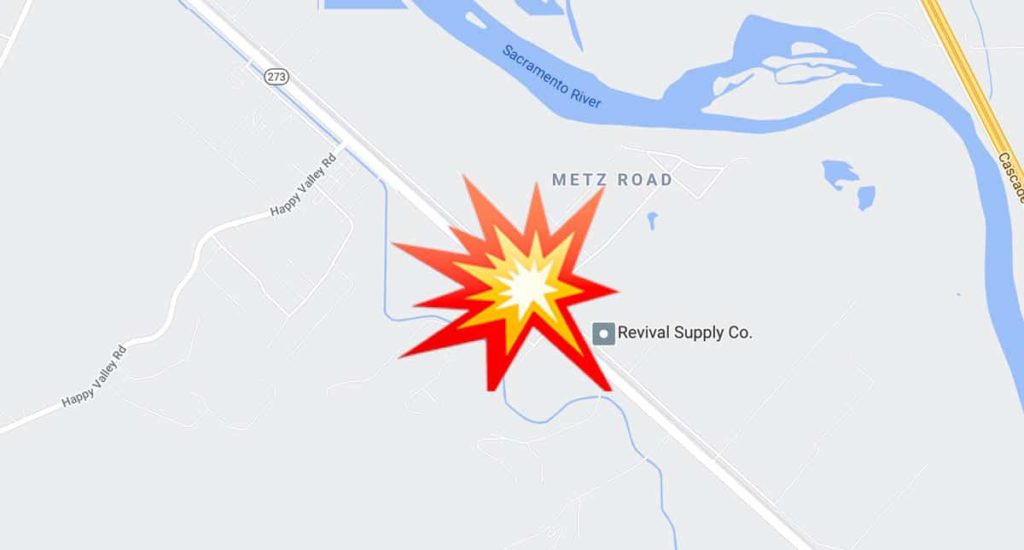On October 11, 2020, at around 9:00 in the evening, a bicyclist was hit and killed by an Anderson, California Police car. The incident occurred just south of Thomas Road on Highway 273. The person killed was riding a bike in the fast lane before being struck by an officer driving an Anderson Police car. The officer was not injured. The bicyclist was pronounced dead at the scene after the officer tried to save him.
Any death is hard, but accidental deaths can be incredibly difficult for families. When a government official like a police officer causes the death of a loved one, it’s natural to want justice. If you’ve lost a loved one to the actions of the government or police, you may want to consider filing a wrongful death claim against those responsible.
What Is Wrongful Death?
A wrongful death occurs whenever someone dies because of someone else’s negligence or problematic behavior. Many accidental deaths can be linked to someone else’s failure to take proper precautions or their unsafe actions. In these cases, that other person may be partially or fully liable for the death.
A wrongful death claim is a civil lawsuit filed against the person or entity that may have caused the death. This claim can be filed by the decedent’s surviving close family or heirs. These claims aim to support the surviving family after the financial and emotional loss of their loved one. Successful claims typically lead to the defendant paying for any medical bills, funeral costs, and income that the surviving family lost due to the death.
In order for someone to file a wrongful death claim against anyone, police or otherwise, they need to prove that the other party’s action or inaction was the cause of the death. To show this, the plaintiff needs to prove that the defendant was negligent by demonstrating three elements:
- That the defendant had a duty of care to the decedent.
- That the defendant breached that duty of care.
- That this breach actively led to the death in question.
If the plaintiff can show that all three of these elements existed and that they suffered a financial loss because of the death, then they have a strong chance of winning their wrongful death case.
Wrongful Death vs. Murder
There’s a significant difference between a wrongful death claim and a murder case. Homicides are considered criminal cases, while wrongful death is a civil suit. Homicides lead to a criminal record, while civil lawsuits do not.
Both types of cases can be filed for the same incident. Since they occur in different courts and cover separate aspects of the incident, the defendant can face both cases at once. They can also have different outcomes, so even if a criminal case does not find the defendant guilty, the related civil lawsuit may find them liable.
Can You Sue Police for a Wrongful Death?
A civil lawsuit can be filed against any entity in the US, including the police. Because of police departments’ governmental nature, though, you need to take a few extra steps to file a wrongful death claim against a police officer.
Moving Past Qualified Immunity
As public employees, police officers are protected from certain types of lawsuits by a concept known as qualified immunity. Essentially, police officers cannot be sued for monetary damages for actions they take in the course of their duty as long as they don’t knowingly violate anyone’s constitutional rights.
Proving that the police officer in question knowingly violated someone’s rights is the first step to suing that officer. Since the 14th Amendment forbids any state or official to “deprive any person of life” without a trial, many deaths caused by police may circumvent qualified immunity. This is particularly true if the officers’ actions or inaction were obviously at risk of leading to someone’s death.
It’s also possible to sue the officer’s city or jurisdiction instead of the officer themselves. In cases where the officer likely has qualified immunity, the jurisdiction may still be held liable for their actions. Employers can be held liable for the actions of their employees, and this still holds true for police officers and the cities for which they work. In cases where no constitutional right was actively violated, such as in a random bicyclist’s death caused by negligent driving, suing the city may be more effective.
Filing in State vs. Federal Courts
Once you know whether you’re suing an officer or their jurisdiction, you can decide where to file your claim. If you’re suing a jurisdiction or officer for negligence, then you will file your wrongful death claim with the state. On the other hand, if you’re suing based on a violation of your loved one’s constitutional rights, you’ll need to file your claim with federal courts.
The state of California handles cases regarding negligence and injuries or deaths that aren’t the result of constitutional violations. These cases are handled similarly to other wrongful death or personal injury lawsuits after passing the hurdle of qualified immunity. The one exception is that whether you sue the officer or the jurisdiction, the jurisdiction will almost always pay for the damages. The officer themselves is protected by indemnity laws.
If you’re suing about a violation of constitutional rights, then the federal courts must handle it. State courts don’t handle constitutional law cases because decisions set a precedent for the whole country.
Wrongful death lawsuits are emotional and complicated, even without involving government officials. If the police were involved in the death, the case becomes significantly more complex. Before filing a civil claim against the police, get in touch with a qualified wrongful death attorney. They can outline your options and help you build a case that can succeed in court. More importantly, they can handle the fine details while you take the time to mourn your loved one.





